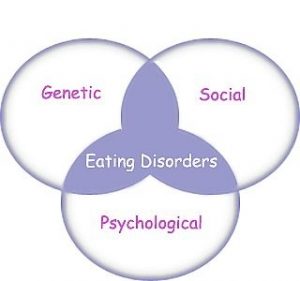Therapy May Provide Prevention For Teenagers At Risk For Obesity
 A team of scientists at the Uniformed Services University of the Health Sciences and the National Institutes of Health has piloted psychotherapy treatment to prevent excessive weight gain in teenager girls deemed ‘at risk’ for obesity.
A team of scientists at the Uniformed Services University of the Health Sciences and the National Institutes of Health has piloted psychotherapy treatment to prevent excessive weight gain in teenager girls deemed ‘at risk’ for obesity.
Teenagers & Obesity
The research team, led by Dr. Marian Tanofsky-Kraff, aimed to target youth considered at high-risk of obesity because they were already above average weight and because they reported episodes of loss of control eating or binge eating. Both higher weight and loss of control eating are linked to excessive weight gain in children and young people.
Interpersonal Psychotherapy Treatment
Interpersonal Psychotherapy (IPT) focuses on improving interpersonal relationships by targeting the underlying social and interpersonal difficulties that influence individuals to engage in loss of control eating. The therapy has been shown to help both depressed adults and youth and, also to help tackle binge eating in adults. In adult studies, decreases in binge eating may lead to modest weight loss and less regain over time compared with those who continue to binge eat. Thus, decreasing binge eating is an attractive target for preventing obesity in at-risk youth.
Clinical Trial
Thirty-eight girls, some with and others without loss of control eating, were selected for the trial, and were randomly designated to attend either IPT sessions or standard health education classes currently taught to teenagers. All the girls completed their courses and received follow up visits for the next year.
Clinical Trial Results
Girls who undertook IPT were more likely to stabilize or reduce their BMI than those who received the health education classes. BMI is a measure of body weight corrected for height, and is used to determine appropriate weight gain in growing children and teens.
Source: Journal of Eating Disorders
 Eating Disorder Self Test. Take the EAT-26 self test to see if you might have eating disorder symptoms that might require professional evaluation. All answers are confidential.
Eating Disorder Self Test. Take the EAT-26 self test to see if you might have eating disorder symptoms that might require professional evaluation. All answers are confidential.